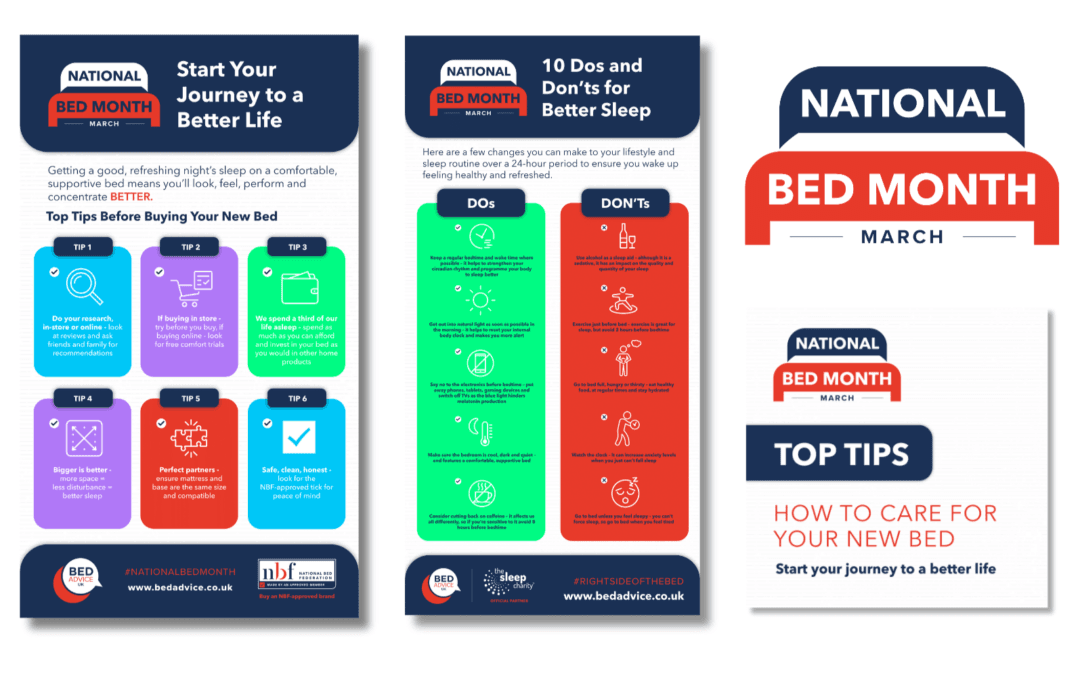The bed industry is warning of further price rises and extended delivery times in the wake of reported daily increases and reduced availability of raw materials.
According to the National Bed Federation (NBF), which has just conducted a snap poll of members, bedmakers remain under huge pressure as a result of volatility in raw material costs and availability, as well as logistic issues around Brexit plus disruption caused by COVID.
Supplies, affected by what one manufacturer described as daily increases, are mainly from foam, steel/spring, timber and chipboard, and even fabrics.
Members reported that:
• Foam continues to be on allocation with further price increases being forecast (40% increases so far).
• Springs – wire prices continue to rise as steel remains in short supply in Europe (30% increases so far).
• Timber has seen 20% plus increases with US building and DIY trades “sucking all the capacity” from wherever they can get it, along with demand for housing / garden furniture (including ‘lockdown bars’) far exceeding supply.
With foam manufacturers facing unprecedented increases in prices paid for key chemicals such as TDI, Polyols etc., one md said the situation had been exacerbated by Europeans not driving or flying: “As many of these chemicals are biproducts of the oil industry this means there are considerably less biproducts available, thereby driving prices ever higher.”
Freight costs, fuel rises and an increase in paperwork and surcharges for Northern Ireland and European exports were also playing a role in price hikes according to members. One said the rises are being driven by a huge increase in global demands for these commodities – and if suppliers didn’t pay the increases, he claimed they simply didn’t get supplied.
Another said that, historically a 40 foot container out of Asia to Europe would have cost $3000 but “now you can pay $12,000 to $18,000 if you can even get one.”
It all adds up to huge pressure on prices for bed manufacturers with one saying: “The impact on prices means that a bed I sold to a retailer for £250 in January 2019 is £335 in April 2021 and may increase even further.”
While one company reported that the supply of materials has settled down a little, others remained nervous about the stability of the supply chain, predicting it could be 12 months before any semblance of normality returns. This would not be helped by the likely impact of the end of the furlough scheme in September.
One company owner said: “Even though people think we are out of it, there are many issues affecting human resources. Staff wanting summer holidays all at the same time, or extended leave to allow for quarantine might become an issue this summer – some employees have suggested if we don’t allow them a month off they will leave.” The effect of the April increase to minimum wages was also mentioned.
Said NBF marketing and membership manager Simon Williams: “With demand for beds described as “extraordinary” and lead times on some suppliers up from seven to 21 days, the picture being painted is one of turbulence and concern around passing on price increases – along with possible delays.”
The NBF findings come in the wake of a statement from four key European and bedding trade associations which united to express their concern over the conflicted response across the EU to the coronavirus pandemic, saying it has created added uncertainty and difficulty for the sector. This was in addition to the challenges posed by reduced availability of raw materials, considerable increases in raw material prices, as well as bottlenecks over logistics.











